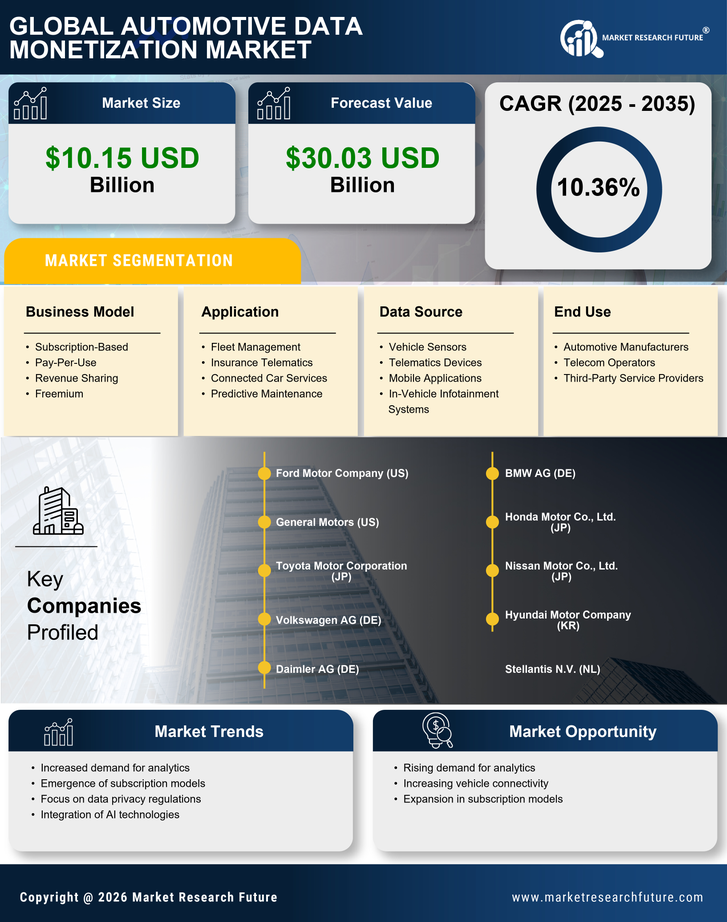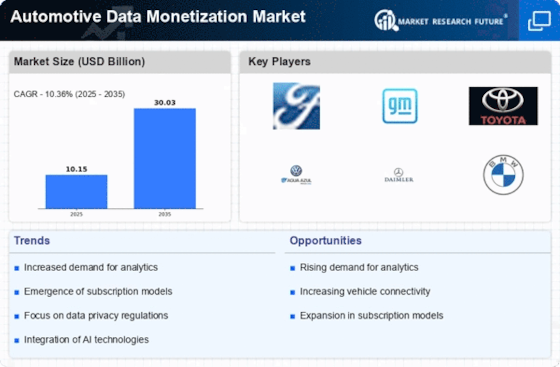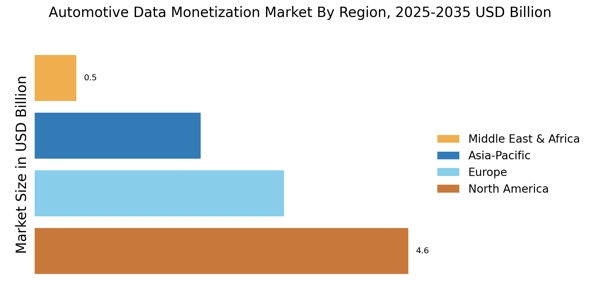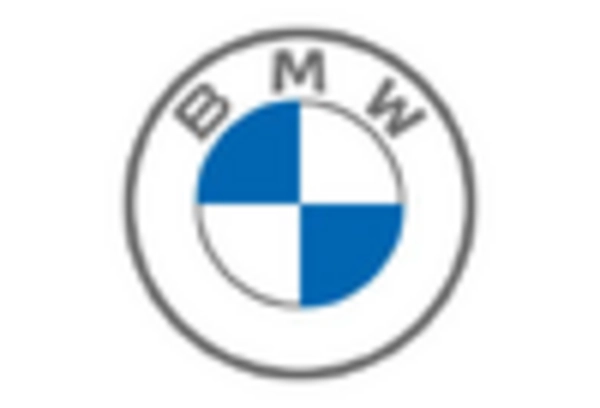Advancements in Vehicle Technology
The Automotive Data Monetization Market is propelled by rapid advancements in vehicle technology. Innovations such as connected car systems, telematics, and vehicle-to-everything (V2X) communication are transforming the automotive landscape. These technologies enable vehicles to collect and transmit data, which can be monetized through various channels. The market for connected car technology is anticipated to reach USD 50 billion by 2027, indicating a robust growth trajectory. As automotive manufacturers invest in these technologies, they create opportunities for data monetization through services like insurance, maintenance alerts, and personalized marketing. The integration of advanced sensors and IoT devices further enhances data collection capabilities, allowing for more sophisticated analytics. This technological evolution is a key driver in the Automotive Data Monetization Market.
Increased Demand for Real-Time Data
The Automotive Data Monetization Market is experiencing a surge in demand for real-time data analytics. As vehicles become increasingly connected, the ability to gather and analyze data in real-time is paramount. This demand is driven by the need for enhanced safety features, predictive maintenance, and improved customer experiences. According to recent estimates, the market for real-time data analytics in the automotive sector is projected to reach USD 20 billion by 2026. This growth indicates a strong inclination towards leveraging data for operational efficiency and customer satisfaction. Companies are now focusing on developing platforms that can process vast amounts of data generated by connected vehicles, thereby creating new revenue streams. The integration of advanced technologies such as AI and machine learning further enhances the capabilities of data monetization, making it a critical driver in the Automotive Data Monetization Market.
Regulatory Support for Data Sharing
The Automotive Data Monetization Market is benefiting from increasing regulatory support for data sharing among stakeholders. Governments are recognizing the potential of data to enhance road safety, reduce traffic congestion, and improve environmental sustainability. Recent regulations encourage automotive manufacturers to share data with third-party service providers, which can lead to innovative applications and services. For instance, the implementation of data-sharing frameworks is projected to create a market value of USD 15 billion by 2025. This regulatory environment fosters collaboration between automotive companies, tech firms, and municipalities, enabling the development of smart city initiatives. As regulations evolve, they are likely to facilitate a more robust data ecosystem, thereby enhancing the monetization potential of automotive data. This collaborative approach is essential for the growth of the Automotive Data Monetization Market.
Expansion of Smart Mobility Solutions
The Automotive Data Monetization Market is significantly influenced by the expansion of smart mobility solutions. As urbanization continues to rise, cities are increasingly adopting smart transportation systems that rely on data-driven insights. This trend is expected to create a market opportunity worth approximately USD 30 billion by 2025. Smart mobility solutions encompass various services, including ride-sharing, autonomous vehicles, and integrated public transport systems. These services generate vast amounts of data that can be monetized through partnerships with technology firms and service providers. The collaboration between automotive manufacturers and tech companies is likely to enhance the development of innovative mobility solutions, thereby driving the demand for data monetization. This synergy not only improves operational efficiency but also contributes to sustainable urban development, making it a pivotal factor in the Automotive Data Monetization Market.
Growing Consumer Acceptance of Data-Driven Services
The Automotive Data Monetization Market is witnessing a growing consumer acceptance of data-driven services. As consumers become more accustomed to personalized experiences, they are increasingly willing to share their data in exchange for enhanced services. This trend is reflected in the rising adoption of subscription-based models and value-added services in the automotive sector. Market Research Future indicates that the consumer acceptance rate for data-sharing initiatives is expected to reach 70% by 2026. This shift in consumer behavior presents a lucrative opportunity for automotive companies to monetize data effectively. By leveraging consumer insights, companies can tailor their offerings, improve customer engagement, and drive loyalty. This evolving landscape underscores the importance of understanding consumer preferences, making it a vital driver in the Automotive Data Monetization Market.


















